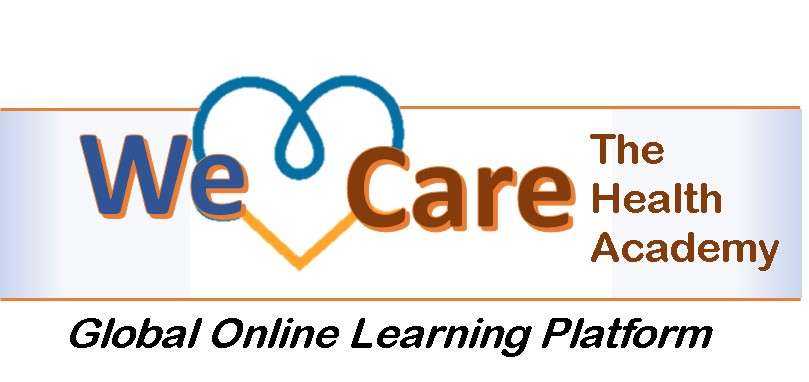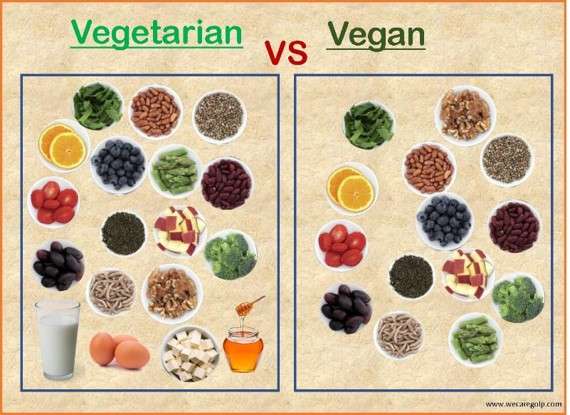Introduction
The difference between vegetarianism and veganism is confusing.
- Primarily, it is based on the role of animals in food production.
- However, both diets focus on a plant-based diet.
- Both vegans and vegetarians refrain from eating meat.
- Sometimes, these two words use synonymously.
- Diet and obesity are related to each other.
- Whether low carb, paleo, keto, Atkins, vegan, vegetarian, DASH diet, or something else, they are these days popular because of increasing metabolic disorders.
- Since obesity-related diseases are increasing these days, people are attracted to the plant-based diet.
Vegetarianism and vegetarian diet
- Vegetarianism is the practice of excluding meat, poultry, fish, and seafood. Both vegans and vegetarians refrain from eating meat. However, veganism is stricter and forbids the consumption of dairy, eggs, honey, and products made from animal products including leather, wool, fur, and silk.
- According to a vegetarian society, a vegetarian is someone who does not consume any animal product.
- A vegetarian diet can include
- Vegetables and fruits
- Grains and pulses
- Nuts and seeds
- Honey
- Dairy products
- Eggs
- A vegetarian diet does not include
- Meat or poultry
- Fish and seafoods
- Stock or fat from animals
- Insects
- Gelatin or animal rennet
- The consumption of dairy and dairy products, honey, and eggs largely depends on the type of vegetarian diet.
- Usually, people choose to be vegetarian for a variety of reasons, such as parental preferences, health considerations, religious or cultural beliefs, concern for animal rights, and environmental concerns.
- Carefully planned vegetarian diets can supply the required nutrients and are nutritionally sufficient for all life stages.
- Consumption of healthy amounts of fruits and vegetables, limiting salt and free sugar intake, abstaining from alcohol, maintaining a healthy weight, and leading an active lifestyle are all crucial.
Category of vegetarians
The following table shows the different categories of vegetarians.
| Categories of Vegetarians | Diet |
| Lacto-vegetarian | Includes · Milk and milk products · Plant-based foods (cereals, pulses, legumes) · Vegetables and fruits Excludes · Meat · Fish · Eggs |
| Lacto-ovo-vegetarian | Includes · Eggs · Milk and milk products · Plant-based foods (cereals, legumes, pulses) · Vegetables and fruits Excludes · Meat · Fish |
| Ovo-vegetarian | Includes · Eggs · Plant-based foods (cereals, legumes, pulses) · Vegetables and fruits Excludes · Meat · Fish · Dairy products |
| Pescatarian | Includes · Fish and seafood · Dairy products · Eggs · Plant-based foods (cereals, legumes, pulses) · Vegetables and fruits Excludes · Meat and poultry |
| Flexitarian (Part-time vegetarian) | Includes · All type of foods (occasionally eat animal-based products) |
| vegan | Includes · Plant-based foods (cereals, pulses, legumes) · Vegetables and fruits Excludes · Meat and poultry · Fish · Eggs · Dairy products · All animal-derived products |
Veganism and vegan diet
- Veganism is a practice of not consuming or utilizing any meat and animal products, such as meat, leather, cheese, fish, eggs, or sea foods.
- Veganism is the strictest form of vegetarianism.
- A vegan diet is a subtype of a vegetarian diet. It involves only plant-based foods and avoids anything derived from animals.
- A vegan diet includes
- Plant-based foods (cereals, legumes, pulses)
- Vegetables and fruits
- A vegan diet excludes any products originating from animals, including
- Dairy
- Eggs
- Meat.
- Gelatin, honey, carmine, pepsin, shellac, albumin, whey, casein, and some forms of vitamin D3
- Vegan society defines veganism as a way of living that makes every effort to avoid animal exploitation and cruelty.
- Veganism is not just about restricting the diet but also avoiding the exploitation of animals for any purpose.
- The attitude of vegans and vegetarians on how animals should be used by humans vary.
- Because of this, some vegetarians may consume animal-based products whereas vegans do not.
- In essence, many vegans avoid all animal products including cosmetic products, clothing, bathroom items
Health benefits of vegetarianism and veganism
Compared to omnivores, vegetarians and vegans can have more health benefits. However, discipline, careful planning, and supplementation (if needed) play a crucial role in obtaining all those necessary nutrients.
- Vegetarians and vegans have lower blood glucose, cholesterol, and body mass index (BMI) compared to omnivores.
- It reduces the risk of various diseases, e.g., type 2 diabetes, heart diseases, metabolic disorders, renal failure, and cancer, and boosts overall health.
- On the other hand, vegetarians, and vegans have a low possibility of inflammatory disease. Animal products are fundamentally the causative factors of inflammation.
- Furthermore, it helps in hormonal balance, especially in women, because of avoiding dairy products.
Health risk of vegetarianism and veganism
Since vegans and vegetarians do not eat animal products, they require more effort and attention to ensure all nutrients.
- They are prone to get nutritional deficiencies like vitamin B, vitamin D, iron, calcium, and protein.
Which is healthier (vegetarianism or veganism)?
- Scientific research suggests that both vegetarian and vegan diets may provide various health benefits, including reduced Body Mass Index (BMI) and cholesterol and maintained blood pressure and blood sugar levels.
- It is difficult to say which is healthier because both of them have advantages as well as disadvantages.
- Plant-based foods lack vitamin B 12, an essential nutrient.
- Vegetarians and vegans can get vitamin B12 from fortified foods or vitamin B 12 supplements.
- Both diets can consider suitable for all life stages if it plans well.
- Both vegetarian diets and vegan diets may be considered healthy eating choices.
- However, a vegan diet may lead to various nutrient deficiencies if not well planned.
- Vegans may suffer from calcium, phosphorus, and vitamin D deficiency as they do not eat dairy products.
- However, a vegan diet helps lower cholesterol levels as it does not include dairy products and eggs.
- Similarly, vegans also can deficient in Omega-3 fatty acids, such as EPA (eicosapentaenoic acid) and DPA (docosapentaenoic acid), often found in eggs and seafood.
- Studies suggest that, vegetarians have lowered risk of type II diabetes mellitus, gallstones, dementia, and stroke.
- Disease protection may be due to low intake of saturated fat, cholesterol, and animal protein.
- They also consume usually high amounts of fiber, folic acid, antioxidants, such as vitamins C and E, carotenoids, and phytochemicals.
Conclusion
- Both vegetarians and vegans avoid the consumption of meat and fish and focus on plant-based foods, such as grains, fruits, vegetables, lentils, nuts, and seeds.
- Particularly, vegans exclude all the animal products, such as dairy products, eggs, honey, wool, leather, fur, and silk.
- There are various types of vegetarians depending upon the consumption of eggs, dairy products, and fish.
- Both diets offer numerous health benefits if well-planned.
References
- https://www.heartfoundation.org.nz/wellbeing/healthy-eating/nutrition-facts/plant-based-vegetarian-vegan-diets#:~:text=A%20vegan%20diet%20excludes%20all,fish%20(see%20table%20below).
- https://www.healthline.com/nutrition/vegan-vs-vegetarian#bottom-line
- https://www.livescience.com/whats-the-difference-between-veganism-vs-vegetarianism
- https://vegsoc.org/info-hub/definition/
- https://www.bbc.com/future/article/20220429-the-climate-benefits-of-veganism-and-vegetarianism
- https://www.nutrition.org.uk/putting-it-into-practice/plant-based-diets/healthy-eating-for-vegetarians-and-vegans/#what
- https://www.betterhealth.vic.gov.au/health/healthyliving/vegetarian-and-vegan-eating
- https://www.vrg.org/nutshell/vegan.htmhttps://www.mayoclinic.org/healthy-lifestyle/nutrition-and-healthy-eating/in-depth/vegetarian-diet/art-20046446
- https://www.mayoclinic.org/healthy-lifestyle/nutrition-and-healthy-eating/in-depth/vegetarian-diet/art-20046446

